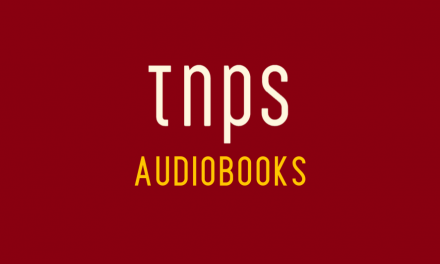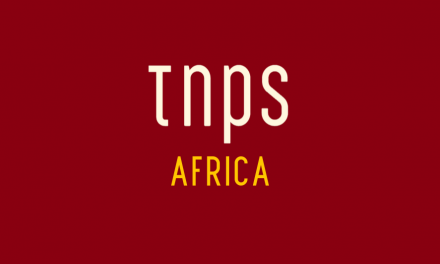Curiously I’m not seeing many big publishers writing to their authors and asking if they want their publisher to continue to stick its head in the sand so the authors miss out on all these new revenue streams.
Hard on the heels of the $10 million deal Taylor & Francis made with AI company Microsoft, allowing AI to access T&F content, three more academic publishers – Cambridge University Press (CUP), Oxford University Press (OUP) and Wiley – have confirmed partnerships with AI companies.
Taylor & Francis faced backlash from some academics a few weeks back after revealing the $10m partnership with Microsoft. Critics argue that authors were not informed about the deal and are not receiving additional compensation, while T&F maintains that it is protecting authors’ rights and ensuring royalty payments. It’s too soon to know which of those narratives will hold true.
There are of course legitimate concerns about how publishers are selling access to AI companies, seemingly without prior discussion with, or arrangement to compensate, the authors who created the content.
But this begs the question what the authors signed up to when they entered contracts with the publishers. My guess is most contracts did not give authors the right to be consulted on every decision about how the publishing company intended to exploit the property it was entrusted with, or the right to opt in or opt out of business opportunities arising.
This of course a distinct, if not entirely separate, issue from the thorny debate about whether AI companies are “illegally” using content scraped from the web, which was the 2023 bogeyman du jour and a gift to the Luddite fringe intent on keeping publishing in the stone-age.
But the times, they are a-changing.
The mood in the industry is swinging away from knee-jerk reactivity to evaluating opportunities, and many of the concerns author have about AI are, seemingly, being addressed, as we see from the limited detail the latest three AI-dealing publishers have made public.
Wiley is busy emphasising compensation and rights protection. They believe Generative AI can transform knowledge-based industries and have entered agreements to use select published content for AI training.
The CUP has taken the author outrage to heart, and offers authors the chance to opt-in for AI licensing agreements, ensuring fair remuneration and proper attribution.
While the OUP is actively collaborating with AI companies to responsibly develop and use large language models (LLMs), aiming to improve research outcomes and highlight researchers’ roles in an AI-enabled world.
Meanwhile back on the electrified AI fence surrounding the ranch, the trade publishers fight one another to try appear the most indifferent to any new opportunity arising that might benefit the company and its authors long term but might court controversy in the short term.
Pan Macmillan has staked out the moral high ground with its pious refusal to sell access to copyright works for AI purposes, asserting its focus on a “people first” approach and engaging stakeholders. This all sounds oh so wonderful, of course, and is fully in keeping with Pan Macmillan’s insisting that manuscripts are written by hand on vellum with a quill pen, and delivered to the office by horse-drawn carriage. But not on the last Friday of the month, because that’s when the boys are sent up the chimneys.
Hachette and HarperCollins both say they have not, so far, sold any material for AI research, and HarperCollins has stated it will provide authors the option to participate if such agreements were made. For if, read when, of course. HarperCollins’ parent company is making deals all over with AI companies and is not going to let HC sit on the fence much longer.
Over at The Bookseller, Heloise Wood has further details on the responses of the above three publishers, but what’s of particular interest is Wood’s wording: “Of the corporate publishers surveyed, three replied to confirm they did not sell authors work for AI.” A logical conclusion being the others either do, or intend to, but are not willing to go public yet.
The Bookseller quotes Lance Eaton, a “higher education consultant and AI expert” as predicting more scholarly publishers will sign similar data-access deals, which is a bit like predicting the sun will rise tomorrow, and for good measure Eaton throws in concerns about AI’s ability to properly cite and credit scholarly work, as if this is never ever a problem with human-centred publishing.
But let me wind up this post by going full circle to the Taylor & Francis deal, because the $10 million payout from Microsoft itself was just a down-payment, with three years of unspecified new cash in the pipeline in what is described as “a source of significant new value for Taylor & Francis and additional royalties for authors.”
And the deal with Microsoft was just one of two deals T&F parent company Informa made with AI companies, that collectively are expected to deliver Informa an AI-related profit of more than $75 million, in this year alone.
Last month, the Copyright Clearance Centre announced that its its Annual Copyright License (ACL) has been revised to become “the first-ever collective licensing solution for the internal use of copyrighted materials in AI systems.”
Or in plain English, a deal that enables creators to receive remuneration for their work when used by AI.
Sadly most of the trade publishers are so busy posturing about their commitment to author interests that they probably haven’t even noticed.
And curiously I’m not seeing any big publishers writing to their authors and asking if they want their publisher to continue to stick its head in the sand so the authors miss out on all these new revenue streams.
This post first appeared in the TNPS LinkedIn newsletter.





